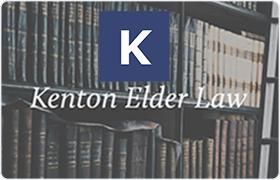 Stamping Ground Estate Lawyers, Kentucky
Stamping Ground Estate Lawyers, Kentucky
Sponsored Law Firm
-
 x
x

Click For More Info:
-
Kenton Elder Law
713 College Rd Paris, KY 40361» view mapEstate Law Helping Generation After Generation
Kenton Elder Law works with families to ensure smooth financial transitions and long term care arrangements as older adults move into later stages of life.
800-932-7301
Lawyers
1-1 of 1 matches
Child Support, Family Law, Workers' Compensation, Wills & Probate, Health Care Other



 Carolyn Kenton Paris, KY
Carolyn Kenton Paris, KY Practice AreasExpertise
Practice AreasExpertise